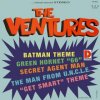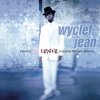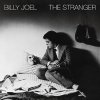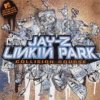with the eighth pick in the twenty-second round of the 2013 Desert Island Music Draft, i select...
Aesop Rock - Skelethon (07/10/12):
Wiki
01 Leisureforce (feat. Allyson Baker & Hanni El Khatib)
02 ZZZ Top (feat. Allyson Baker)
03 Cycles to Gehenna
04 Zero Dark Thirty (feat. Rob Sonic)
05 Fryerstarter
06 Ruby '81
07 Crows 1 (feat. Kimya Dawson)
08 Crows 2 (feat. Rob Sonic)
09 Racing Stripes (feat. Kimya Dawson)
10 1,000 O'Clock
11 Homemade Mummy (feat. Rob Sonic)
12 Grace (feat. Hanni El Khatib)
13 Saturn Missiles
14 Tetra
15 Gopher Guts
Genre: alternative hip hop
my aunt judith is dying of brain cancer. i grew up visiting her on the oregon coastline, where she lived happily with her husband, sherman. i fell in love with the pacific northwest on those trips. i also fell in love with music, as sherman would teach my brother and i how to play "chopsticks" on the piano. sherman passed three years ago, and my aunt relocated to northern CA for work. this also brought her closer to much of her family, and it's only in these last few years that i've really gotten to know her...
she's an intellectual at her core, smart as a whip, and proud as could be of me and my wife, who Judith has come to adore. she completed a master's later in life. she's a thoughtful, graceful, and articulate woman. but her cancer has robbed her of her voice, of her opportunity to say goodbye to her family. she no longer has a functioning ability to communicate, and i can think of nothing more undignifying for an individual with her capacity. doctors have given her less than two weeks to live. my heart ACHES, and i'm struggling to contextualize the loss that is coming...
that said, i turn to music in times of pain. Aesop Rock's Skelethon is providing me with some measure of comfort this afternoon. it is an album consumed with death, attempting to mine catharsis from a wide variety of subject matters and source materials. it's a stunning work, the high-mark of Aesop Rock's career thus far. here is the review of Skelethon that i wrote last year, if you're interested:
Aesop Rock's Skelethon shows us how hip hop might mutate in the face of personal upheaval. Ian Bavitz, better known to his fans as Aesop Rock, has been bending minds with his twisty, verbose, associative style of hip hop for over a decade. And while that style is wholly unique and distinctive, the substance of his work is not short on impact, either. Skelethon was recorded in the aftermath of a series of deaths in the life of its composer, and it is felt from every corner of the album, from the lyrical content to the cavernous urgency of its production. Lead-off track "Leisureforce" tackles the notion of dealing with death in a way that only Aes Rock can: "Final answer: 'Not to be.' / Not to be is right! Next question: to build winged shoes or autophagy / silk-screen band tees, take apart a VCR, ringer off, canned peas, cabin fever mi amor / patently adhering to the chandelier at key-in-door / to usher in the understated anarchy of Leisurforce." Sometimes life amounts to one big distraction, as we try to escape the rather uncomfortable realities that surround us.
Second track "ZZZ Top" manages to lighten the proceedings a bit, as Aes crafts one of the most structurally-compelling tracks of his career, each verse dedicated to a young person discovering an artist of influence in their life. The first "artfully carve[d] 'Zoso' in this desk," a reference to Led Zeppelin. The second "magic-marker[ed] 'Zulu' on these Chucks," a reference to Afrika Bambaataa's Zulu Nation. The third "publicize[d] 'Zeros' in this stall," a reference to punk rock band The Zeros. It's a fascinating study in how our musical obsessions shape us as we grow up. The respite is brief, though, as album highlight "Cycles to Gehenna" returns us to the subject of death. Featuring a forceful bassline and an ominous keyboard line, Aes builds a highway metaphor of sorts for bearing down during moments of tragedy: "corners like a two-tired tiger so a too-tired rider / can accumulate a few excited fibers to assign / knows no zen in the art of maintenance / only as the orchestrated patron saint of changing lanes / baby, here is how a great escape goes / when you can't take your dead friends' names out your phone." It is one of the most lyrically-dense songs on Skelethon. I'm still dizzying myself at each line, attempting to divine meaning from Aes' web of images. He is a challenging artist, to be sure, and the listener must find appreciation in the journey through his lyrics, rather than in the inevitability of an answer. As in life, the answers don’t always come.
"Zero Dark Thirty" offers the listener another break from the heaviness of death, instead opting to take on the difficulties of attempting to accomplish something worthwhile in a life always speeding by. It's a classic fast-paced Aes Rock number that recalls the hooky delivery of career-standout "None Shall Pass." Aes admits, "compass all bats*** spinning in the shadows of immoral magnets / are we supporting the artist or enabling the addict? / I mean, I guess it matters to me, I wish it mattered to you." The culture of now is not necessarily kind to artists of Aesop Rock's persuasion, and "Zero Dark Thirty" reads like a coping mechanism for those realities. In that way, it's not so dissimilar from the Skelethon tracks that deal more closely with the subject of death. It's something like a mourning of the loss of one's place, of one's identity during the most turbulent of moments.
Set to jangling keys and a laserbeam percussive element, "Fryerstarter" is a unique narrative piece about San Francisco hotspot Bob's Donuts. But it would not be a worthy subject for an Aes Rock song if he didn't do something mightily strange with it. Aes then treats a visit to Bob's a bit like a religious experience: "Yum, whether tummy ache or fever / keep the funnel cake, I'm honey glaze in vitro / in the company of similar believers / sleepless, who hear the walls breathe and foam at the facial features, now the yeast / a phoenix in the partially-hydrogenated, equal parts flour, faith, healing / might replace your previously-nominated Jesus." Again, though "Fryerstarter" does not explicitly deal with the subject of death, one gets the sense that Bob's Donuts actually represents something liberating for Mr. Ian Bavitz, like just maybe salvation can be found in your favorite donut shop. "Ruby '81" follows, and it's one of Skelethon's true gems. Entirely drumless and constructed around a simple, droning synthesizer, Aes tells the story of a young girl neglected by her family at a Fourth of July party, who falls into the pool and, unable to swim, is eventually rescued by Ruby, the family dog. It is so surprisingly stunning in its brevity, and it's hard to think of another song like it, either in Aesop Rock's back catalog or anyone else's.
Songs like "Grace" and "Saturn Missiles" each attempt to mine the difficulties of childhood and adolescence for some clarity. The former lurches forward with a wonderfully snotty attitude, and the latter moves with a propulsive earnestness fitting of its title. But it is the album's final track, "Gopher Guts," that really manages to stretch Aesop Rock out of his comfort zone. It begins with minimally-programmed drums and a foreboding low-end. The spare production on display is some of the most accomplished of Aes' career thus far, but it is in the lyrical content of "Gopher Guts" where Aesop Rock introduces us to Ian Bavitz. In the final verse, he comes clean: "I have been completely unable to maintain any semblance of relationship on any level / I have been a bastard to the people who have actively attempted to deliver me from peril / I have been acutely undeserving of the ear that listen up and lip that kiss me on the temple / I have been accustomed to a stubborn disposition that admits it wish its history disassembled." It is a bold artistic move for a man who has spent much of his career obscuring meaning from his listeners. Often, the artist finds it necessary to dress harsh reality up in metaphor as a coping mechanism. Here Ian Bavitz has accomplished the opposite; he has shed the shielding of his gift for language to directly address his own shortcomings, and he does so with a blunt force that I find tremendously empowering. The album closes on the percussive repetition of the word "on," as if Aesop Rock is willing himself forward. And I am quite certain that his listeners will follow.
















